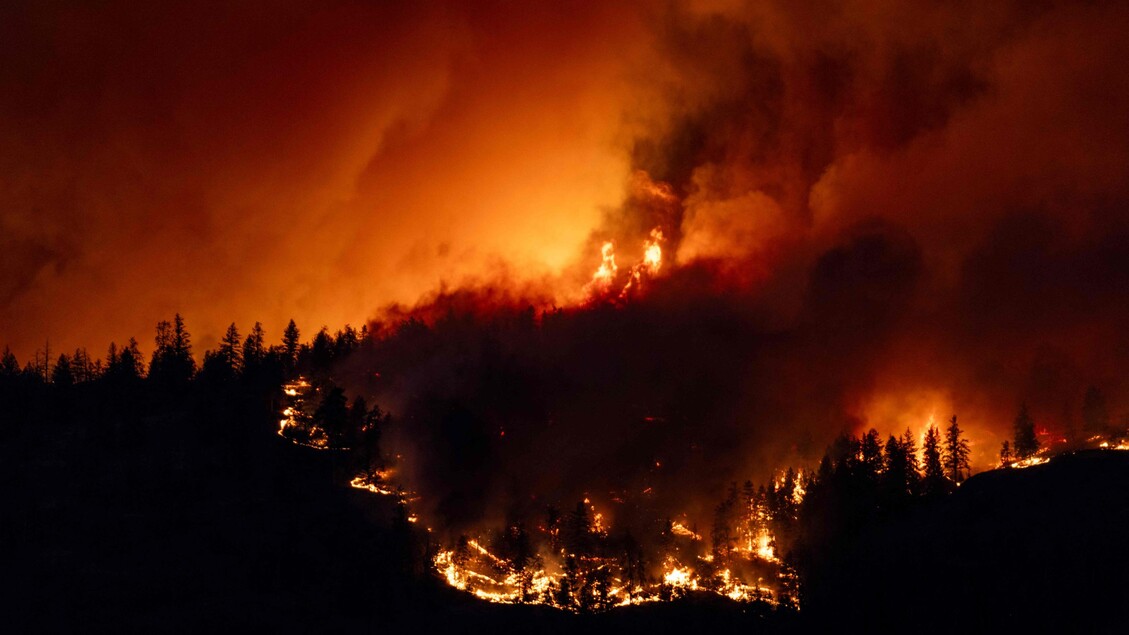A violent and extensive wildfire is rapidly spreading across western Canada, affecting several provinces and forcing thousands of people to evacuate their homes. Authorities have declared a state of emergency in Saskatchewan and Manitoba as the situation worsens.
Saskatchewan Premier Scott Moe described current conditions as among the worst the province has ever faced. Currently, the territory is affected by 14 out-of-control wildfires, which are increasingly threatening local communities and emergency responders working in the field.
Manitoba has also declared a state of emergency. More than 17,000 people have been evacuated, and the Canadian Armed Forces have been mobilized to assist in fire evacuation and containment operations. Manitoba Premier Wab Kinew called the crisis “a time of fear and uncertainty.”
Evacuees are being temporarily housed in sports facilities and community centers in Winnipeg and other cities. The situation has already had tragic consequences: Sue and Richard Nowell, a couple living in Lac Du Bonnet, a rural area near Winnipeg, died trapped in their home during a mandatory evacuation.
According to the Canadian Interagency Forest Fire Centre, more than 166 fires are currently active across Canada, 84 of which are considered out of control. In addition to Saskatchewan and Manitoba, serious outbreaks are also present in Alberta, Ontario, and British Columbia.
Dense smoke generated by the fires has begun to cross the southern border, causing air quality alerts in the United States. The cities of Minneapolis, Detroit, Green Bay and Chicago are among those likely to be affected in the coming hours.
Some residents have told the media about the dramatic impact of the situation. Elsaida Alerta, of Flin Flon (Manitoba), described the air as “so overrun with smoke you can’t breathe.” Dawn Hlady, a Creighton resident, recounted the “surreal” scene of an entire community fleeing in convoy, calling it “exciting and frightening.”
Communities not yet under evacuation orders were also urged to prepare, should the situation suddenly worsen.
Canada recorded its worst wildfire season in 2023, with more than 42 million acres (about 17.3 million hectares) gone up in smoke, an area larger than the whole of England and more than double the previous record.
Experts link the increasing intensity of the fires to climate change, which is having a particularly strong impact on Canada. The country, which has a generally cold climate, is warming at twice the rate of the global average. Even more worrisome is the situation in the Canadian Arctic, where warming is proceeding at three times the rate of the rest of the planet, contributing to intensified and more frequent extreme events such as forest fires.












